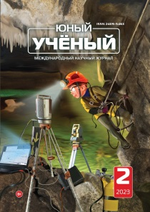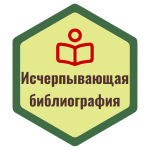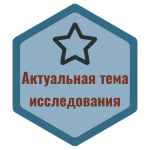The lifestyle of today's children and adolescents is significantly different from what their peers had thirty years ago. Today our world is characterized by saturation with information. It is difficult to judge whether this is good or bad, but often we are overloaded with sources of information, and we need the skill to work with them. Digital technologies and modern gadgets accompany children from an early age. Not surprisingly, children are sometimes better than their parents in understanding modern devices. In the leisure time of a student, the older he is, the more time it takes to interact with a computer, smartphone and tablet. The topics of discussion have also changed. Increasingly, one can hear the conversation of students during the break, the meaning of which is clear only in general terms, but for some reason the words are unfamiliar.
The relevance of this work is obvious. We live in a time when technological progress is on our heels. Computers and smartphones are already familiar technology, and children are familiar with it from an early age. It's no secret that many teenagers spend their free time at the computer. Computer games are constantly being upgraded, some are leaving, new ones are coming in their place. But the emergence of concepts associated with them always leads to the emergence of new words.
We put forward the following hypothesis : most of the words used by modern children and adolescents in the discussion of computer games are borrowed from the English language, and by playing computer games we learn, enlarge the vocabulary. The fact is that learners apply those words and phrases in the English classrooms.
The purpose of this research work is to reveal the origin of lexical units used by learners in computer games and identify the influence of computer words to learning English.
We have set for ourselves the following tasks that need to be solved in the course of research work on this topic:
1) Study literature, find out what historical events served as an impetus for the spread of the English language in the world.
2) Choose lexical units frequently used by teenagers within the framework of computer games and determine the origin of these words.
3) Conduct a survey among students of grades 8–9, which will allow to identify how popular borrowings from the English language are in the speech of students when discussing computer games.
4) Summarize the results of the work in the conclusions.
In the research work, we used the following research methods :
1) empirical (study of various sources of information, survey, observation);
2) theoretical (analysis);
3) quantitative (statistics).
We studied the literature on the topic of the work and outlined the theory in a brief form. In order to study the meaning and origin of the lexical units of interest to us, we worked with printed and online dictionaries. They also made personal observations and recorded the most popular words on the subject of computer games. The next stage was a survey in the form of a questionnaire, in which learners of grades eight and nine participated. After conducting the survey, we analyzed the results and summarized them in outputs.
Language is a living and open system, subject to constant changes, because they occur gradually. Cultures and peoples interact, their languages also interact. Looking back and studying the history of your country, the history of the world, we can find explanations why at one time or another changes began to occur in the language. In the Russian language there are many confirmations of this — borrowings. In this work, we were interested in anglicisms, borrowings from the English language. Many new concepts are emerging at present, especially in the field of engineering. Having studied the vocabulary of computer games, we managed to prove that it was borrowed from the English language and they are said to effective way of learning English, moreover the words from computer games are used in classroom when the units ‘Modern technologies’, ‘Hobbies and interests’, ‘Independent projects’ are taught. Thus, our hypothesis was confirmed.
As a result of the study, we also solved the tasks set and achieved the goal of the work. We have traced the relationship between some historical events and the interaction of languages with each other. Moreover, the English language occupies one of the first places in terms of the strength of its influence on other languages. We studied the origin of a group of lexical units on the subject of computer games and confirmed that these are Anglicisms. The results of the survey showed that the topic of this work is really relevant. Modern teenagers actively use anglicisms in their speech, discussing computer games and broad their vocabulary. The survey itself aroused their keen interest.
The audience into whose speech these borrowings penetrate is not limited to adolescence. For many adults today, computer games are also part of the pastime and even the main occupation. For many years, eSports competitions, including international ones, have been held.
The studied vocabulary is not well-established and traditional. Nevertheless, observing the changes in our native language, we can assume that these lexical units after some time may take a place in the dictionaries of foreign words.
We plan further research on this topic. The received didactic materials will be useful in the classroom and will serve to increase the motivation to learn foreign languages.
References:
- Википедия https://ru.wikipedia.org/wiki/История_Интернета (дата обращения 02.05.2022)
- Информатика. Энциклопедия для детей. / Научн.ред. А.Леонов, отв.ред. Е.Хлебалина. — М.: Мир энциклопедий Аванта, Астрель, 2004
- Онлайн-словарь Abbyy Lingvo https://www.lingvolive.com/en-us (дата обращения 16.06.2022)
- Онлайн-словарь Multitran https://www.multitran.ru (дата обращения 18.06.2022)
- Полный англо-русский русско-английский словарь: 300 000 слов и выражений / В. К. Мюллер. — Москва: Эксмо, 2017
- Пушкин А. С. Стихотворения. Евгений Онегин / Издательство «Детская литература», Москва, 1972
- Словарь иностранных слов и выражений /Авт.-сост. Е.С.Зенович. — М.: Олимп: ООО «Фирма «Издательство АСТ», 2000
- https://school-science.ru/8/3/42399 (дата обращения 18.07.2022)
- https://xn--j1ahfl.xn--p1ai/library_kids/samie_chastotnie_anglitcizmi_online_igr_i_ih_bezop_110837.html (дата обращения 18.07.2022)
- Словарь молодежного сленга http://teenslang.su/ (дата обращения 09.08.2022)
- Сырескина С. В., Иванько А. В. Англоязычные заимствования в русском языке // Молодой ученый. — 2017 — № 41
- Энциклопедия «Языки мира» / Под ред. М. Аксеновой, Л. Петрановской, А. Элиович и др. — М.: Мир энциклопедий Аванта, Астрель, 2009










